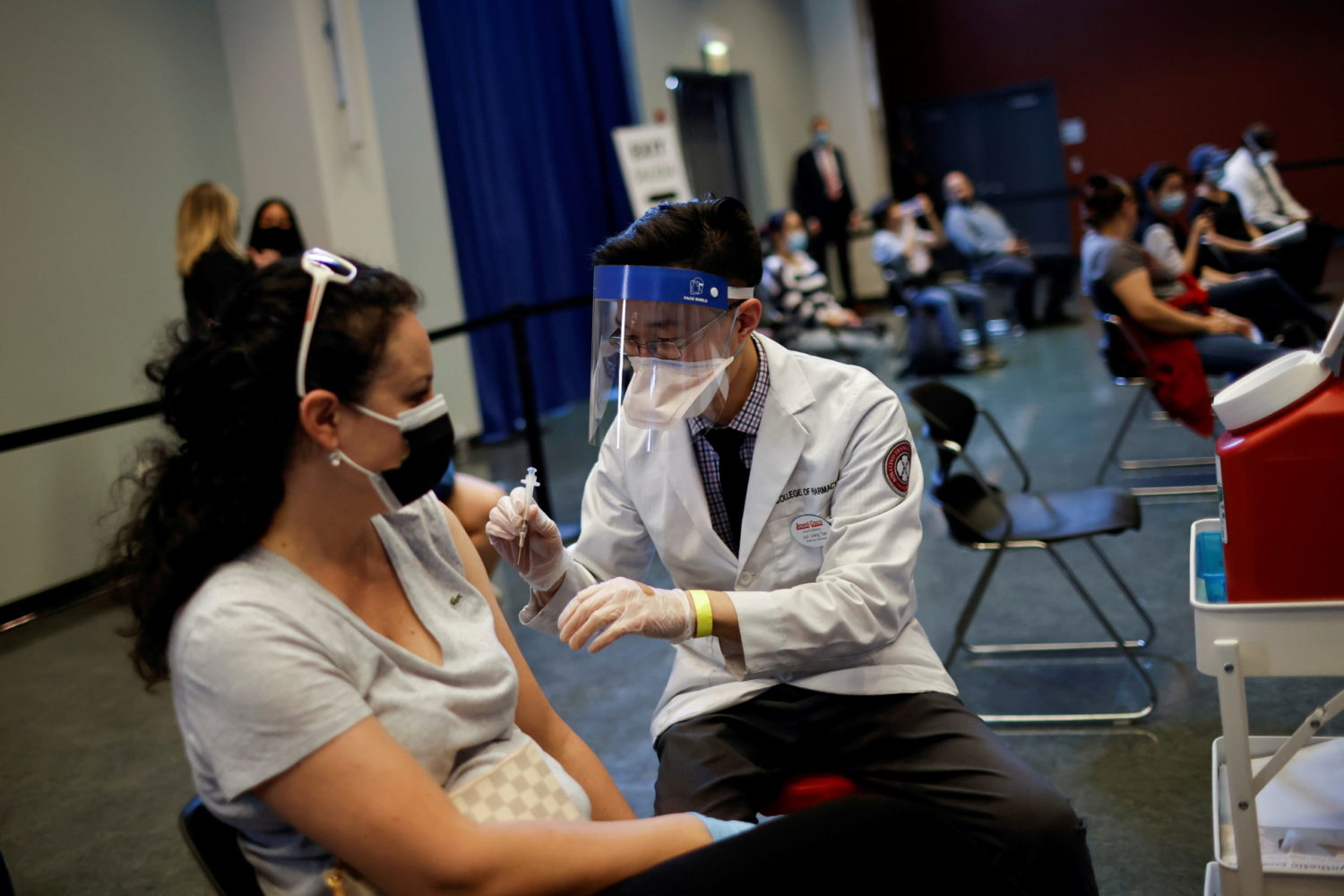
(Reuters) – Some countries have halted altogether or are giving only one dose of COVID shots based on so-called mRNA technology to teens following reports of possible rare cardiovascular side effects.
Europe’s drug regulator said in July it had found a possible link between a very rare inflammatory heart condition and COVID-19 vaccines from Pfizer/BioNTech and Moderna.
However, the benefits of mRNA shots in preventing COVID-19 continue to outweigh the risks, European and U.S. regulators and the World Health Organization have said.
Here are some of the steps some countries are taking:
CANADA
The Public Health Agency of Canada said data suggested that reported cases of rare heart inflammation were higher after Moderna’s COVID-19 vaccine compared with the Pfizer/BioNTech shots.
SWEDEN
Sweden paused the use of Moderna’s COVID-19 vaccine for younger groups, citing data from a yet unpublished Nordic study.
The Swedish health agency said it would pause using the shot for people born in 1991 and later as data pointed to an increase of myocarditis and pericarditis among youths and young adults that had been vaccinated.
DENMARK
The Danish Health Agency said on Friday that it was continuing to offer Moderna’s COVID-19 vaccine to under-18s, and that a statement on Wednesday suggesting a suspension had in fact been a miscommunication.
FINLAND
Finland paused the use of Moderna’s vaccines for younger people and instead would give Pfizer’s vaccine to men born in 1991 and later. It offers shots to those aged 12 and over.
HONG KONG
A panel of health experts advising the Hong Kong government has recommended in September children aged 12-17 should get only one dose of BioNTech’s COVID-19 vaccine after reports of heart inflammation as a side effect.
NORWAY
Norway is giving one dose of Pfizer/BioNTech vaccine to children aged 12-15.
UNITED KINGDOM
Britain has been offering all 12-15-year-olds a first a shot of the Pfizer/BioNTech vaccine. Second doses would not be offered to the age group until at least spring when there may be more data from around the world.
(Compiled by Antonis Triantafyllou; Editing by Anna Pruchnicka and Tomasz Janowski)











